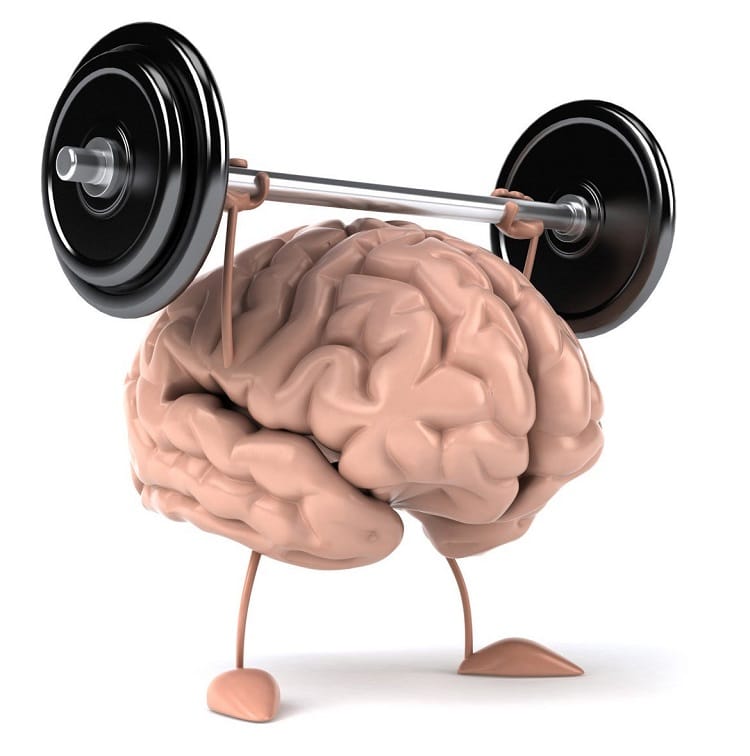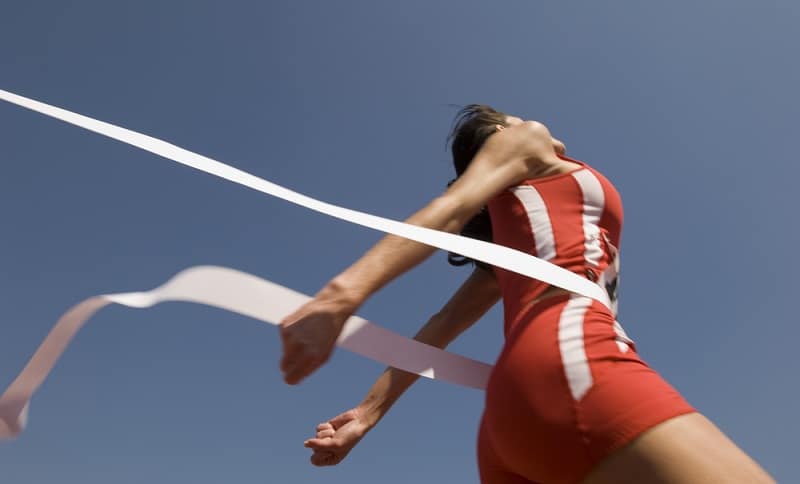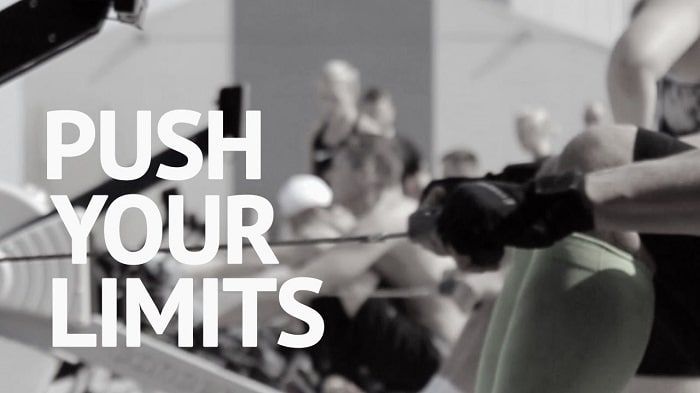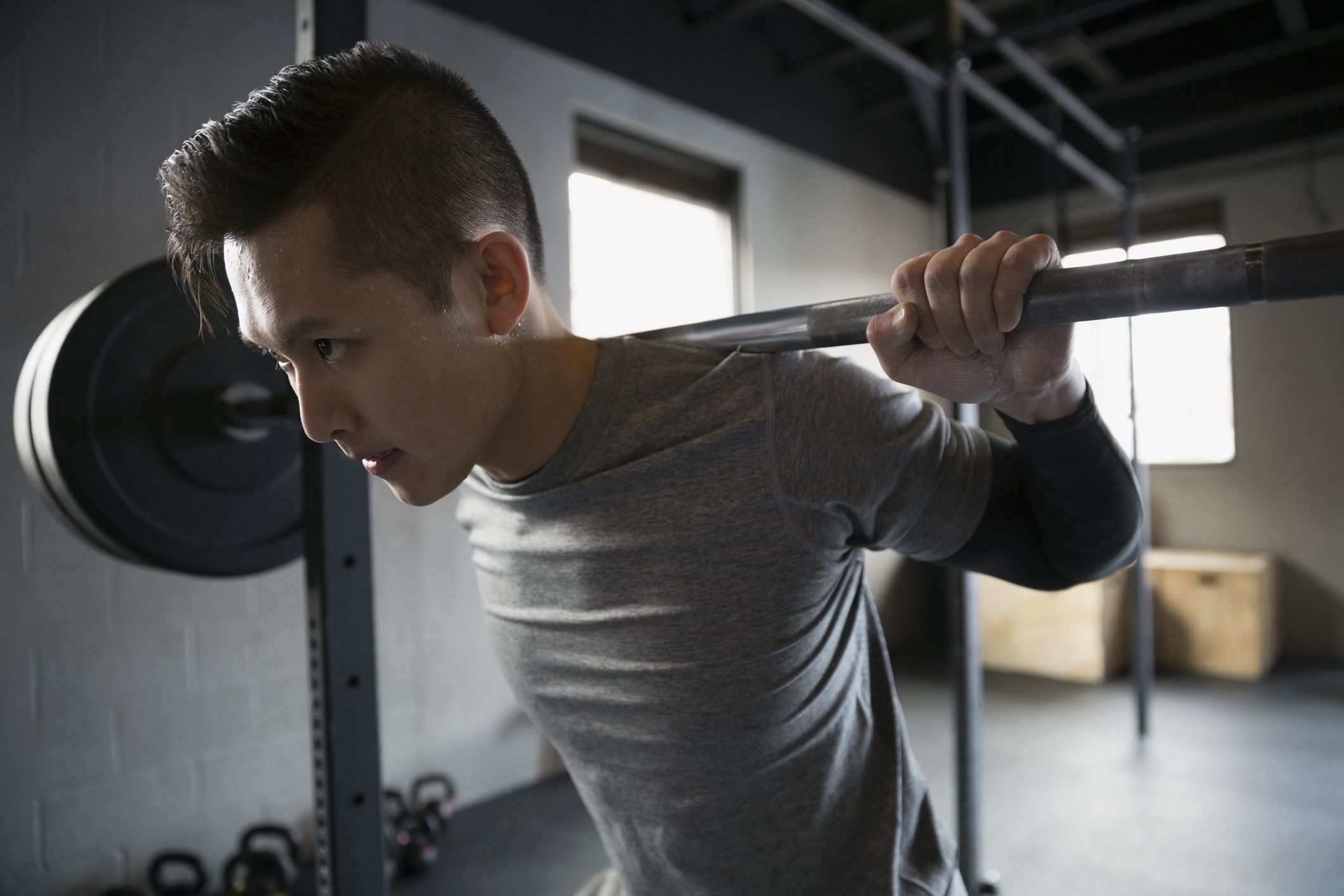Table of Contents

*This post may contain affiliate links. As an Amazon Associate we earn from qualifying purchases.
One of the most important qualities a top athlete has is a mental strength. It is beautiful to watch an athlete make a last minute shot that everyone thought was impossible, or overtake another competitor in the last moment.
But mental resolve or strength is also what helps a runner to will oneself across the finish line when tired or another athlete to complete a race after falling and knowing it is just about finishing. As many athletes know, competing isn’t just a physical game, it is also a mind game.
To see the most popular books about mental toughness just click here.
What Is Mental Strength?

Mental strength (or toughness) is about having awareness, resilience, and determination. I like to call it a mental strength rather than toughness because strength is something each individual can improve. It’s like a mental muscle, so with some training and work, improvement can occur.
This type of muscle allows athletes to last longer in the game on days when they don’t feel well. Or when the referee is unfair, one won’t lose their cool easily and can stay focused on the game. Mental strength develops when a person goes through trying times and comes out more resilient.
Many coaches help build this mental muscle by having difficult practices or taking their teams to the edge in some way. The key is how athletes respond to this type of training.
Can you stay engaged and focused?
Can one possibly fail but recover to return?
Can the athlete maintain a decent attitude when conditions are really challenging?
The Problematic Sides of Mental Strength
To be clear, purposely treating an athlete badly, no matter the age (youth to adult), in an attempt to improve mental strength, is not being recommended. It is not helpful to berate and/or bully someone in an attempt to develop their mental toughness.
This type of treatment can occur from a coach, a teammate, parents, and even fans. Sometimes, there are signs that the manner in which someone is going about trying to build mental strength is not working. Consider a change if the athlete shows these signs:
- Lowered confidence.
- Increased negative emotions.
- Increased irritability.
- Increased isolation.
Remember there is a big difference between challenging an athlete to improve and berating one. This is key in building positive mental strength.
6 Ways to Promote Mental Strength in Sports
1. Think Positively
One of the most simple ways to become mentally stronger when one is under pressure is to take note of what is going well. Negative or critical thoughts about oneself during a difficult situation usually only add to the mental stress. This is the opposite of what one wants.
Positive thoughts, on the other hand, increase a person’s resilience to what’s going on. Positive thinking, over the years, has evolved into a skill that is often misunderstood. Thinking positive means knowing when to analyze a game and be honest about what is going well.
In the middle of a game, getting down on yourself and highly critical may not be the best time or best strategy to help mental strength.
For example, an athlete who is angry at a call can use positive self-talk to keep the anger at a manageable level. This can help stop the anger and other damaging emotions from taking control. No one wants to be removed from the game because they lost control of their emotions.
Positive thinking, such as “I can do this if I stay cool,” can assist.

2. Meditate Regularly
Based on a growing body of research, meditation is showing promise with helping individuals enhance mental clarity, reduce stress, and improve self-control. Many athletes are reluctant to try meditation due to misconceptions. There are different types of meditation.
Sitting cross-legged in silence or chanting “om” are not the only ways to meditate.
For those who avoid meditation because they have hyperactive minds, there’s a type of meditation for them. It’s called mindfulness meditation.
With mindfulness meditation, one doesn’t try to silence their thoughts. They focus on what’s going on in their minds and around them while breathing deeply and being aware of thoughts but not reacting to them. It is a great practice for building attention and awareness, which are part of mental strength.
3. Use Imagery of Success
Before entering the game, high-level performers often use imagery and see themselves playing well and winning. You might imagine yourself staying level-headed and focused throughout a game.
Because it has already occurred in one’s mind, and the move has been rehearsed, it can be easier for the body to follow through. If you are feeling a lot of pressure and mental stress, take a few minutes to visualize coping with the pressure in the way you want to in the actual situation.
Create a mental plan so you know what to do when the pressure feels high. See yourself being pleased with the way you managed the situation.
4. Push One’s Limit a Few Times Per Month
Many top performers find ways to push themselves and venture out of their comfortable routines. This helps lay a good foundation for mental strength. There is no greater teacher of confidence than to see yourself do something you doubted you could.
A tree with strong roots
laughs at storms
–Malay Proverb
Trees get stronger with the wind. If they stood still they would not be as strong. Likewise, a person might quit more quickly when faced with a problem because she has not been in situations that made her uncomfortable.
Find ways in sports practice, or other areas of your life, to challenge yourself, and take note of how you feel mentally after these experiences. Chances are high you will feel more confident if you can push through the challenge.

5. Develop a Sense of Commitment
When one feels a sense of commitment, to oneself or a team, they feel more motivated to accomplish a task regardless of obstacles. This is a mental strength. A great question is to ask yourself “WHY” are you doing something? How does this why help motivate you?
A sense of commitment can mean showing up on time no matter the hour or circumstances. You might do this to show leadership and as a personal commitment or you made to do this in order to lead by example. The hope is that the commitments you choose help you act for the larger good, such as team success over individual success.
One activity an athlete can do to strengthen commitment is to write and list what responsibilities come with their position or sport. Then make a plan to commit to fulfill those responsibilities.
6. Improve Adaptability and Flexibility
In general, people can be resistant to change. This is similar to being comfortable with your routine and what you know. However, being inflexible and slow to adapt to changes slows the process of building mental strength. Athletes often work on physical flexibility as a means to play better and avoid injury. Mental flexibility provides similar benefits.
A flexible mental game is needed for handling unexpected training challenges, such as changing weather conditions, new routines, and even coping with other people. A flexible mind might mean looking at the same situation from multiple perspectives and challenging your own assumptions.
A great example of flexible mindset is not assuming a game is done. Have you ever felt momentum shifts, where one team suddenly starts to overtake the other when they were losing? It can feel like a force occurred and the other team gets stronger and stronger.
Those momentum shifts can be related to mental strength.
Final Thoughts
Developing mental strength is essential for top performance in sports. Many athletes who are at the top of their game are mentally strong. They can stay level-headed during stressful moments.
Even when the odds are against them, they don’t give up. Some people have naturally developed mental strength through tough life experiences in addition to being challenged in their sport.
However, no matter how old one is or what one’s background is, they can improve this muscle. Implementing the tips listed above will help one develop the mental strength for sport and life.


